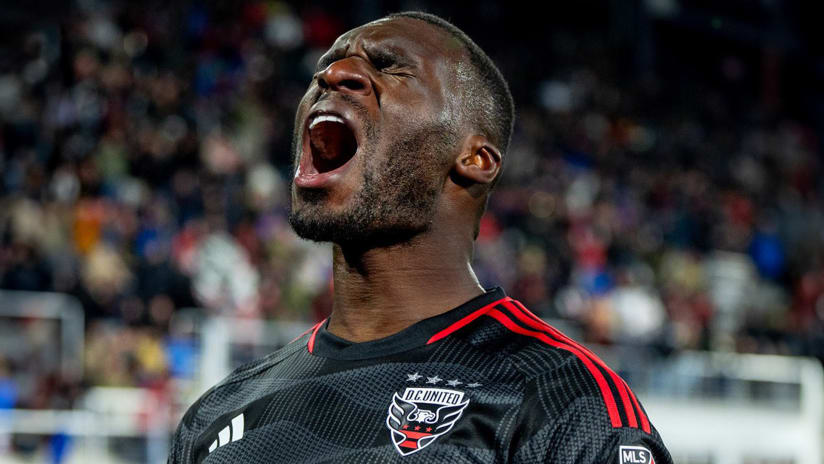After a rough start to the 2021 season, the Hernan Losada era at D.C. United appears to be flourishing. The MLS original sits sixth in the Eastern Conference standings, three points above the playoff line and three points from second place.
The Black-and-Red are unbeaten in five with back-to-back wins heading into a showdown with Nashville SC on Sunday at Nissan Stadium (7 pm ET | MLS LIVE on ESPN+).
It’s a far cry from the campaign's early goings, which saw D.C. United win their opener against New York City FC before dropping three consecutive matches by a combined 8-2 scoreline. Same goes for their 2020 season, which saw Ben Olsen depart and included a second-from-bottom finish in the East.
So why the change? How did it happen? Losada, who joined the club in January from Belgian First Division side Beerschot, provided some insight on the most recent edition of Extratime.
“As a young coach, full of energy like me, you start and you want everything after a few weeks and that was something that I needed to understand – that I was arriving to a new culture, to a new club, a new mentality, a new league where different aspects play a big role, like the weather, the traveling,” the 39-year-old Argentine manager said.
“And I also needed to realize that this team, and not only this team, but the whole competition came from a very tough year last season where there were many breaks and the offseason was longer than ever. For some players, the beginning was tough, but you need to start somewhere and we did a lot of changes. Little by little, we started to find that balance between pushing too hard, being fit, nutrition, a mental coach and at a certain point, everything can together and we started to get results.”
Losada also said utilizing his full roster has been key. While yes, his hand was forced due to a multitude of injuries and there were bound to be some growing pains, getting every player minutes is paying dividends now.
“I knew it was a matter of time, even though now we still are missing important pieces and important players, but we tried to give the attention to all the players because we knew we were going to need them all — from No. 1 until No. 28 or 29,” Losada said. “I think we are the only team in the league to have 26 different starters in the league. We used in total 28 players until now.”
One change that appears to be a masterstroke is Andy Najar's reinvention as a center back in Losada’s preferred three-man backline. Part of that move was out of necessity — due to injuries, Najar has had limited minutes over the last three years, so his fitness levels weren’t there to be a modern attacking fullback.
“Him playing as a center back was also kind of part of a plan because playing as a wingback or playing as a winger, you have to do a lot more high-speed distance and sprints,” Losada said. “As part of his buildup and fitness, we thought it was going to be the perfect fit for him for our system to start as a center back, an offensive center back, and from there on try to choose the right moments to play him higher up the field if the team needs it.”
Losada said he used the same tact during his time with Beerschot, where he had served as manager since 2019.
“I always played with a back three, but one of the center backs used to be a fullback, an offensive fullback, and then you create overlaps from a lower position,” he explained. “That makes it very hard for the opponent to defend because the defender starts very low, nobody follows him, and when you have a player with the abilities of Andy on the buildup to break that first line of pressure, well many people maybe who knew Andy from before were thinking this is a little bit crazy to play that guy as a center back. But actually, when we have the ball, he’s more an offensive fullback and he’s not anymore a center back.”
While Najar is enjoying a career resurgence of sorts, Losada also spoke glowingly of rising homegrown prospects Kevin Paredes and Moses Nyeman. Before this summer's Gold Cup, they both trained with the US men's national team.
Losada said he has a great rapport with both teenagers, who he can see playing at the highest levels in Europe in the future.
“For me, they’re both key players. I love the way they train, I love the freshness and the energy they bring in the team,” Losada said. “I don’t know what the limits for them. Right now, I hope we can enjoy them for a couple more years because I do believe they have potential to play in a very big competition in Europe.”
“Those are the type of players a coach who wants to play the way I want to play needs in your team,” Losada added. “You need those mobile, explosive, full of energy guys who are able to press forward, but also to have the energy you need to play in transition and to play vertical the way we want.”
For more from Losada, check out the clip above or the entire Extratime episode here.












